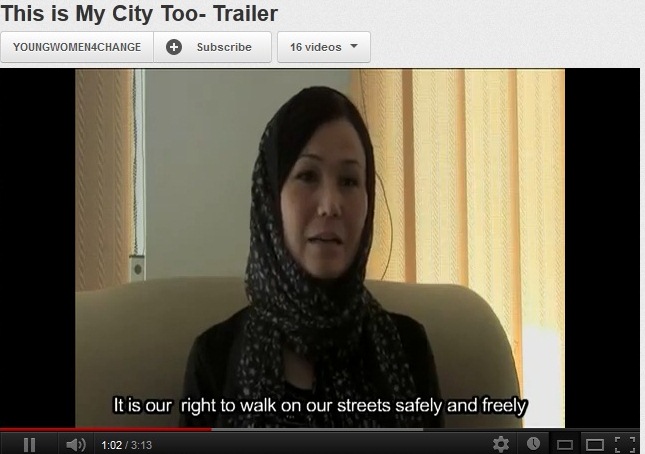“Do Not Trust My Silence” is a powerful new short film about street harassment in Afghanistan (English subtitles), directed by Afghan filmmaker Sahar Fetrat. She won the first prize in Italy’s “Universocorto Elba Film Festival” for her “extreme courage of reporting the Afghan women’s condition in the streets of Kabul and for the technique of shooting with a hidden camera.”
“‘Do Not Trust My Silence’ was my fourth film which was produced in April 2013 and it is one of my favorites. When I first joined the Afghan voice’s media training, I had the vision of making a documentary about street harassment. This documentary for me is more than just a 10-minute film, there is a lot in it. There is a big pain in it that all women, especially Afghan women, can feel. This documentary shows only a little of what we see, feel and experience every day.
When I made this film, I knew that both women and men should be my audience. For men to see and feel a part what we experience every day, and for women to say no to street harassment. I wanted to show that, as a young woman, I do not accept harassment as my destiny and other women should do the same.
While producing this film, I put myself as the main character and I filmed most of the parts with a small flip camera. It was not easy to film men while harassing me or other women, some of them were throwing small rocks towards us. But I did not stop my work because my aim was to show harassment and how destructive it is. I totally believe that we women are strong enough to not give up and fight against it and we have the power to stop it.”
H/T to SSH’s SPS Mentoring Program Mentee Masooma Maqsoodi





